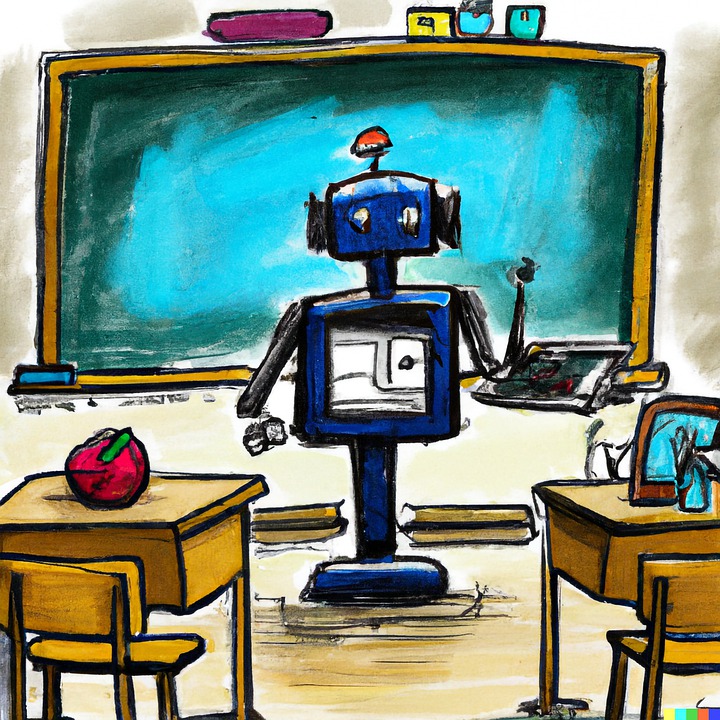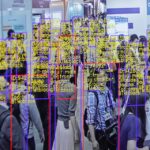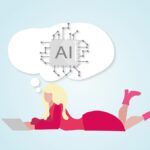
[ad_1]
Artificial Intelligence (AI) is revolutionizing the way we live and work, and education is no exception. In recent years, AI has been increasingly integrated into classrooms around the world, offering new opportunities for personalized learning, improved student outcomes, and enhanced teaching practices.
Table of Contents
- Introduction
- AI in Education
- Benefits of AI in Education
- Challenges of AI in Education
- The Future of AI in Education
- FAQs
Introduction
AI refers to the simulation of human intelligence in machines that are programmed to think and learn like humans. In the field of education, AI technologies such as machine learning, natural language processing, and computer vision are being used to create intelligent tutoring systems, personalized learning platforms, and automated grading tools.
AI in Education
AI is transforming classrooms by providing educators with valuable insights into student learning patterns, preferences, and performance. Intelligent tutoring systems use AI algorithms to adapt to each student’s individual needs, providing personalized instruction and feedback in real-time. This allows students to learn at their own pace and in their preferred learning style, leading to improved academic outcomes.
Personalized Learning Platforms
AI-powered personalized learning platforms analyze student data to create customized learning paths for each student. These platforms use adaptive learning algorithms to recommend learning resources, exercises, and assessments based on individual strengths and weaknesses. By tailoring instruction to each student’s unique needs, personalized learning platforms help students achieve better results and foster a love for learning.
Automated Grading Tools
AI-powered automated grading tools streamline the grading process for educators, saving time and reducing the risk of human error. These tools use machine learning algorithms to assess student work, provide instant feedback, and generate detailed performance reports. By automating routine grading tasks, educators can focus on providing personalized support to students and developing innovative teaching strategies.
Benefits of AI in Education
The integration of AI in education offers a range of benefits for students, educators, and educational institutions:
- Personalized learning: AI technologies adapt instruction to meet the individual needs of each student, improving learning outcomes.
- Efficient grading: Automated grading tools save educators time and provide instant feedback to students, enhancing the learning experience.
- Data-driven insights: AI analytics provide educators with valuable insights into student performance, enabling targeted interventions and support.
- Enhanced teaching practices: AI-powered tools support educators in developing innovative teaching strategies and fostering student engagement.
Challenges of AI in Education
While AI has the potential to revolutionize education, there are several challenges that must be addressed:
- Equity and access: AI technologies may exacerbate existing inequalities in education, leading to disparities in learning outcomes and opportunities.
- Data privacy: The collection and analysis of student data raise concerns about privacy, security, and ethical implications.
- Teacher training: Educators need training and professional development to effectively integrate AI technologies into their teaching practices.
- Ethical considerations: AI algorithms must be designed and implemented ethically to ensure fairness, transparency, and accountability.
The Future of AI in Education
As AI continues to evolve, the future of education is likely to be shaped by innovative technologies and new approaches to teaching and learning:
- Personalized learning: AI will enable educators to provide personalized instruction and support to every student, maximizing their potential.
- Lifelong learning: AI-powered platforms will offer opportunities for continuous learning and skill development throughout life.
- Global collaboration: AI technologies will connect learners and educators around the world, fostering collaboration and cultural exchange.
- Innovative teaching practices: AI tools will empower educators to create engaging and interactive learning experiences that inspire students to explore and create.
FAQs
What is AI in Education?
AI in education refers to the use of artificial intelligence technologies to enhance teaching and learning processes, personalize instruction, and improve student outcomes.
How is AI transforming classrooms?
AI is transforming classrooms by providing educators with valuable insights into student learning patterns, preferences, and performance, enabling personalized instruction, efficient grading, and data-driven decision-making.
What are the benefits of AI in education?
The integration of AI in education offers benefits such as personalized learning, efficient grading, data-driven insights, and enhanced teaching practices, leading to improved student outcomes and engagement.
What are the challenges of AI in education?
Challenges of AI in education include equity and access issues, data privacy concerns, the need for teacher training, and ethical considerations related to algorithm design and implementation.
[ad_2]




















